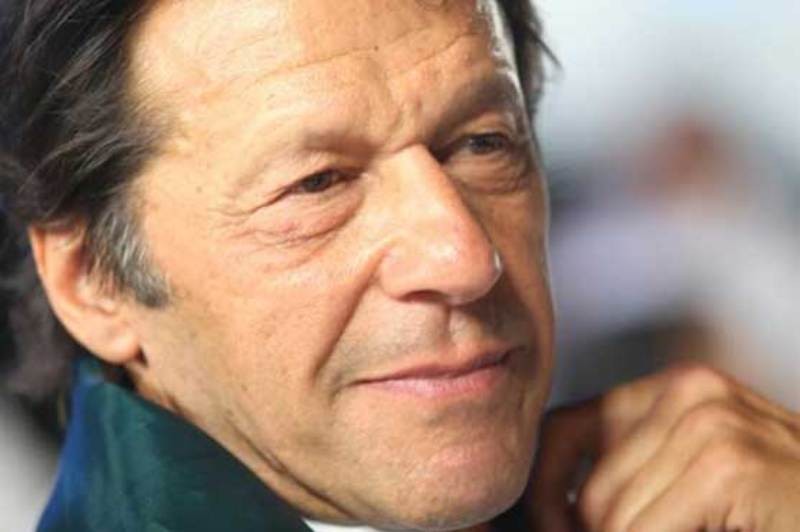
Tensions between the two South Asian nuclear-armed nations have escalated once again after India held Pakistan responsible for an attack in Kashmir.
On February 14, 2019, a convoy of vehicles carrying security personnel on the Jammu-Srinagar National Highway was attacked by a vehicle-borne suicide bomber. The attack resulted in the killing of 40 Central Reserve Police Force (CRPF) personnel. Shortly after the attack, Jaish-e-Mohammad (JeM), a Pakistan-based terror group accepted responsibility of carrying out the attack in a video message. But because the suicide bomber was a local Kashmiri, Pakistan responded by saying this was an indigenous operation, ignoring the fact that JeM’s central leadership continues to reside and operate out of Pakistan, more specifically from the Punjab province.
In a televised addressed, Pakistani Prime Minister Imran Khan said he was open to an investigation, but demanded proof from India for Pakistan's involvement. If PM Khan needs proof that JeM is based out of Pakistan, he does not need to look beyond the Punjab province where his party has a government.
Many local and international news reports have pointed to the presence of JeM in the province, especially in the Bahawalpur area, where it is also believed that Masood Azhar, the head of JeM, resides. The JeM has been banned in Pakistan since 2002, but has continued to operate in the country under different guises, names and identities, as has been the case with other groups like the Lashkar-e-Taiba (LeT), which continues to operate under different names too. So there is no denying that these groups exist on Pakistani soil.
Just as recently as February 5, the day Pakistan marks as ‘Kashmir Solidarity Day’, JeM was eulogised alongside LeT and Hizbul Mujahideen in a rally in Lahore, and the organisers, using a relatively unheard of platform of Tehreek-e-Azadi Jammu Kashmir (TAJK), paid tribute to these militant groups. The JeM also took out rallies in many other parts of the country, which was widely documented on social media, but the Pakistani state seems to deliberately ignore these facts and deflect attention from them by repeating the same mantra we have seen before - asking India for proof of Pakistan's involvement.
Post Mumbai attack in 2008, which claimed over 150 lives, Pakistan had issues similar denials, but later on, the country's own Federal Investigation Agency accepted that the attackers had organised, trained and departed from Pakistani soil. Despite that, till date, no one in Pakistan has been punished for carrying out that attack. It has been 11 years and there has been no progress at all.
Initially, under pressure, the Pakistani government arrested some members of the LeT who had claimed to be behind the attack, including Hafiz Saeed, who was once the head of LeT, but when the time came to present a solid case in courts against these perpetrators of terrorism, the government's prosecution did not follow through with proper investigations, and eventually the court released the suspects because of lack of evidence.
Whenever such attacks happen across the border, it all comes down to Pakistan always demanding proof. But the onus of proof does not only lie with the Indians. Those who are to bring the evidence forward should also be the Pakistani law enforcement agencies but they never do so, perhaps because such groups are part and parcel of the Pakistani foreign policy in the region.
For long now, the Pakistani military has relied on such proxies to achieve its strategic goals in the region and at home, and it has no incentive to act against them. Why does the Pakistani military establishment have this policy? A low-intensity conflict that continues to simmer the way it has for the past six decades between the two South Asian neighbours helps the Pakistani military justify that India is a threat to the country and it may act as an aggressor, and therefore Pakistan needs to be protected. Hence, the military needs to remain dominant in Pakistan owing to such security concerns.
This has led to the military in Pakistan taking away a lion's share when it comes to the yearly government budget. The Pakistani military is a direct beneficiary of the war economy in South Asia through such proxies and, therefore, does not want to strangulate them, including the ones focused on Kashmir, Afghanistan and recently even Iran, which recently claimed that the attack this month on their soil that killed 27 Revolutionary Guards was also orchestrated on Pakistani soil by a group based in Balochistan, the province that borders with Iran.
The Pakistani PM who continues to demand proof from neighbours of such acts of terror needs to look no further than at home where such groups continue to thrive. There are reports of Afghan, Kashmiri and anti-Iran militia's training camps, near each respective border, and if PM Khan is serious about the crackdown, he needs to dismantle the so-called jihadi infrastructure to convince the neighbours and the world that it has zero-tolerance for terrorism anywhere in the world. But there is little hope that Khan will do so, as he enjoys close relations with the Pakistani military, which, many believe, orchestrated his ascension to power in the elections held in July 2018.
So there is little chance that Pakistan will change from within, given that it has no compulsion to do so. But it is time that its international partners review their relations with the country and demand that Pakistan take measures against proxies that breed on its soil.
Pakistan is heavily aid-dependent on its foreign partner countries like the United States, China, Saudi Arabia etc. and these countries need to put their foot down because such militancy does not only threaten regional peace, but global peace too, given that many of these groups have pan-Islamic aspirations and have in the past been involved in helping carry out attacks across the globe.


.jpeg)

